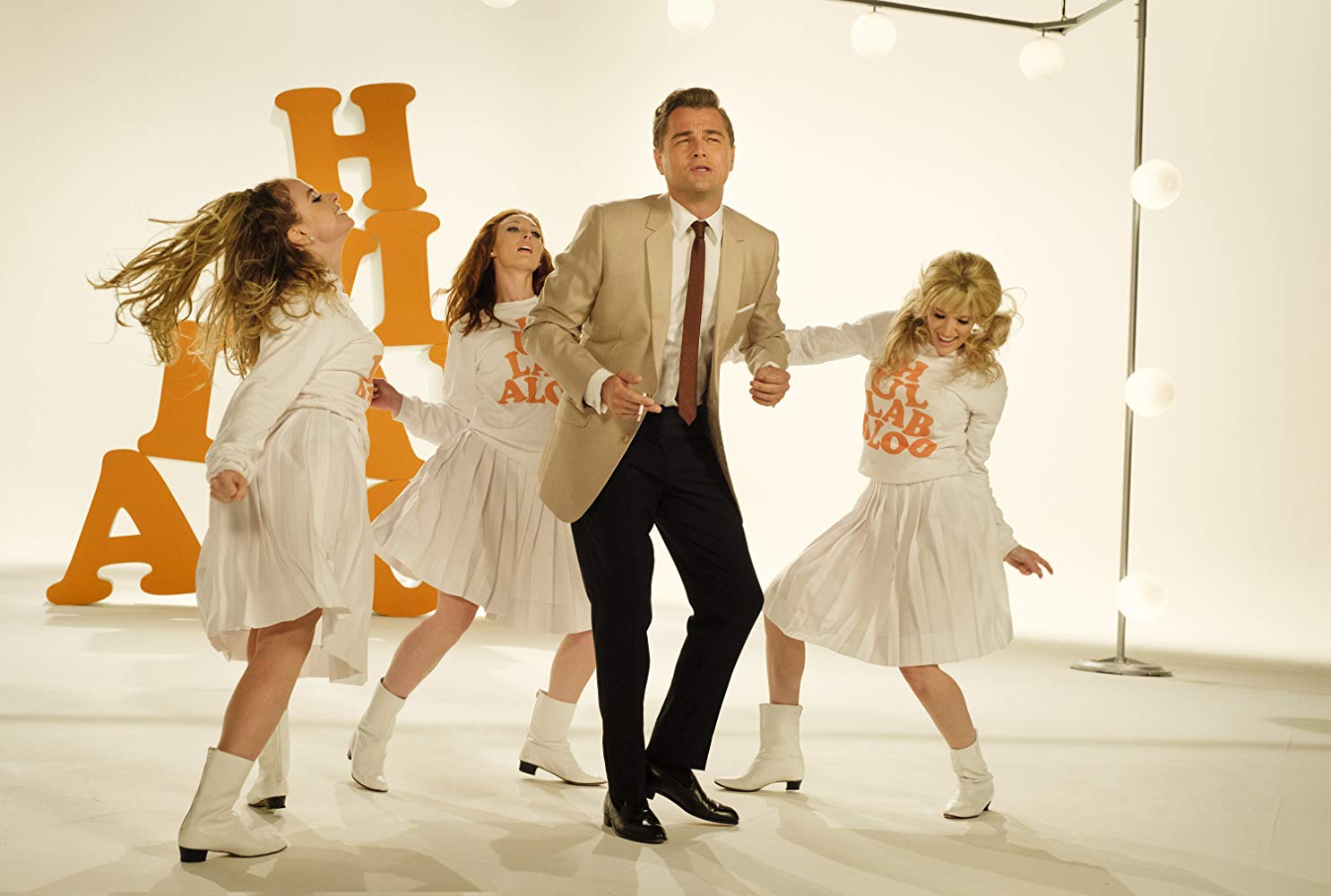A few years ago, Quentin Tarantino confirmed the theory that all of his movies take place in the same universe. He also revealed that his less realistic films, like Kill Bill and From Dusk till Dawn, are movies within that shared universe. For example, when Pulp Fiction’s Marsellus Wallace needs some time off, he might catch Kill Bill: Vol. 2 on a Saturday night. It’s like a movie snake eating its own tail—which is also a good microcosm for Tarantino’s career at large. His oeuvre features just as much homage as it does violence. The man loved and lived movies long before he started making them, and with Once Upon a Time in Hollywood, he’s finally circling back to the head of the snake.
Tarantino’s Hollywood journey is somewhat of a legend. He dropped out of high school to usher at a porn theater, learned about filmmaking while working at a video rental store, and broke into the industry in his twenties after his debut film was an immediate success. Movies are hard-wired into his DNA. But according to Tarantino himself, his tenure as a director isn’t indefinite: after his tenth film, he plans on retiring from the business and writing novels instead. Once Upon a Time in Hollywood—his ninth film—finds him near the end of that road, waxing nostalgic about the world that give birth to him.
In Tarantino’s self-referential fashion, the movie stars a couple of movie stars who are approaching the twilight of their careers. Rick Dalton (Leonardo DiCaprio) is a popular TV actor who’s reckoning with his failure to break into movies; Cliff Booth (Brad Pitt) is his best friend and stunt double. Both of them are unstable people, but despite their flaws and fears, they’re giving the industry their best shot. They’re not the only ones worming into Hollywood history, though: Charles Manson and his family of hippie cultists have just begun their L.A. killing spree.
Describing how these narratives intersect would ruin the surprise, but it’s quite unlike the broad historical revisionism of Inglourious Basterds. Once Upon a Time in Hollywood is less about the outcomes of historical events, and more about what the events represent. The movie maintains a strong through-line of things in decay, whether they’re careers, film genres, or the human body. This through-line accentuates the movie’s setting—the waning years of the Golden Age of Hollywood.
Things weren’t looking great for the American film industry in the late 1960s. The Supreme Court’s 1948 decision to break up the studio oligopoly crippled Hollywood’s power, allowing television and independent film to compete for a large portion of the entertainment audience. Exclusive deals between filmmakers, production companies, and theaters began to crumble. The high status of celebrities came into question. Some of them—like rising actress Sharon Tate, portrayed here by Margot Robbie—became the target of murderous intent. It was a tired time for Hollywood.
And it’s a tired time for Tarantino. Once Upon a Time in Hollywood, ostensibly his penultimate movie, has the director working at his most toned-down. Hollywood may have bounced back in the 70s, but Tarantino’s heyday may be near its conclusion—so he freezes Once Upon a Time in time, looking back wistfully on a past with no promise of a future. And yet, the movie also finds Tarantino at his most tender, imbuing the melancholy setting with an unrealistic dose of hope. It’s the cinematic equivalent of a partner wishing the best for a love they’re about to lose; the closest thing to a goodbye hug that Tarantino will ever give.
Worry not: there’s still plenty of dark comedy and gratuitous violence, though some of it feels perfunctory, as if Tarantino was nervous about restraining his signature flourishes. A couple of his motifs are decidedly unwelcome—Tarantino is still using young actresses to indulge his foot fetish on-screen—but otherwise, the director’s desire to entertain translates with aplomb. With the help of a renowned cinematographer and an endless rotation of illustrious actors, Once Upon a Time in Hollywood ends up being one of his most technically impressive efforts.
It’s also his most mature and low-key effort since Jackie Brown (which is his best movie, so that’s a major compliment). Unlike his finest work, Once Upon a Time’s length and relaxed pace sometimes work to its detriment—it takes nearly two hours for the thematic relevance of the Manson family to fall into place—so it’s a notch below peak Tarantino. But this much earnest feeling from the director is not to be ignored: it’s the golden light emanating from the Tarantino briefcase.
★★★★ (4/5)




